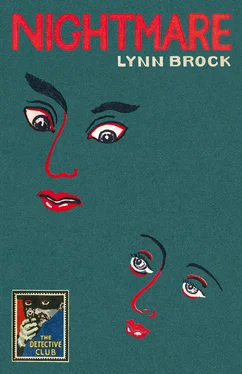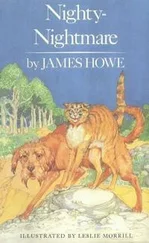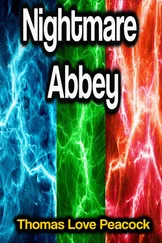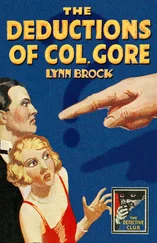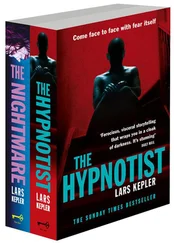He went back to the sitting-room and kissed Elsa passionately. They were drowsy after their long walk and went off to bed before ten.
The days slid away. The weeks began to slide away. There was always something to be done—something that had been done to think about. Sometimes for a week on end the one thing that must be thought about—that must be done—disappeared completely from view. Then, as they returned from a walk or a drive or a mild bridge-party, an abstracted silence would fall on him, and he would quicken his pace, or speed up the car. Arrived at the cottage he would hurry into the little sanctum, light the oil-stove and a pipe, and seat himself with Elsa’s pen and a writing-block. Mrs Higson’s curiosity was aroused by the elaborate designs drawn on the crumpled sheets which she found in the sanctum’s waste-paper basket. She had believed that the master was a literary gentleman, but formed now the conclusion that he was an artiss or something.
No other tangible result was produced by these spurts of industry which gradually became more and more widely spaced. Whalley, of course, explained to Elsa humorously what happened to him when he shut himself up in his lair.
‘I sit down and think that I have got to think of an idea for a play. I immediately stop thinking about anything for a bit. Then I begin to think about you. I draw curlimacews until I think again that I have got to think about an idea for a play. Then I think that it is utterly impossible to think of an idea for a play. The darned thing must come of its own accord. One has nothing to start from—one hasn’t the faintest idea where one wants to go. I draw a lot more curlimacews. Then I think that I have got to think of an idea for a play—that I must start earning some money straight away, and that, whether it is impossible or not, I must think of an idea for a play before I leave that room. I immediately stop thinking about anything. Then I begin to think about you and draw curlimacews until I think again that I have got to think of an idea for a play. It goes on like that until you open the door and tell me that it’s teatime. It’s exactly like trying to make a blind mule drink out of a bucket that isn’t there. There’s no use worrying about it. The darn thing must come of its own accord … Oh, I wanted to oil the lock of the garage.’
Returning from a call one afternoon towards the end of February, Elsa found him standing in the garden regarding the cottage with a curious frowning intentness. A drizzling rain was falling. She reproached him for standing in it without a raincoat.
‘The little shanty got on my nerves suddenly,’ he explained, rather shamefacedly. ‘I felt I had to get outside. It’s such a little box of a place. The ceilings are so low. I’ve felt all along, somehow … stifled … cramped …’
Her voice trembled a little.
‘But I thought you were quite happy here, dear.’
‘Happy? Yes, yes, dear, absolutely happy—you know that, don’t you. It isn’t that. But … It’s so difficult to explain—so perfectly idiotic. It’s all right so long as I am with you, but when I’m alone … That little den of mine gives me the horrors now. When I go into it, all I want to do is to get out of it again as quickly as possible … Oh, there’s that washer for the scullery tap. I shall have time to fix that before tea.’
He abandoned the sanctum altogether. Spring came and was gone. Summer came. Surrey was a garden of drowsy enchantment. The cheery, decorative young people at Myrtle Cottage had made themselves very popular. They played a lot of golf and tennis—had nearly always some engagement for their afternoons. They worked in the garden. Whalley had always some small job to do about the house. Elsa’s eyes lost the watchfulness that had grown in them for a little while following that incident in February. He appeared absolutely happy. Nothing else really mattered.
At the beginning of September, however, his interest in the links and the garden declined noticeably. ‘We’ve got to get out of this place, Elsa,’ he said abruptly as they drank their early tea one morning. ‘Puttiford, I mean, for a bit, anyhow. It’s no use to us. It’s a backwater—a blind alley for us. These people who live here in those houses in among the trees—well, they’re very nice and kind, and so forth—but, you know, they’re dead. Stuffed. Nothing ever happens to them. Nothing could ever happen to them. They’re determined that nothing will ever happen to them. That’s why they live at Puttiford. We’ve got to get away from them … get round … see people who are alive and do things. Anyhow, for a bit.’
They left the cottage in Mrs Higson’s care and took the car up one side of England to Scotland, and down again along the other side, travelling by short stages, and staying at a number of alarmingly expensive hotels. If the people whom they encountered along the way were not dramatically inspiring, most of them were at all events alive and amusing. The two months’ holiday was a gratifying success and had a gratifying sequel. Within a month from their return to Puttiford, Whalley wrote a play.
True—it was not a comedy, but a historical play—and a historical play whose theme and characters had been used before by many other dramatists. Nor had any original idea been born to Elsa’s fountain-pen. Whalley had merely been strongly impressed by that tragic little room at Holyrood and had decided to write a play about Mary, Queen of Scots. However, it was a play, and, he thought, quite a good one. Elsa considered it perfectly wonderful. They celebrated its departure to Whalley’s old agent by a weekend at Brighton.
The ice was broken. Before the time came to leave their little cottage two more plays had been written—one a rather gloomy War drama, the other a four-period comedy with a first act set in the ’sixties.
The parting from Myrtle Cottage was, at the last moment, a severe wrench. Some encouraging news from the agent, however, consoled them. His New York office had succeeded in interesting a well-known manager in the comedy. After some weeks in rooms in Guildford, they found a tiny flat in Chelsea to let furnished for three months, and installed themselves there. Whalley wrote another comedy, but soon found London distracting. They returned to Surrey in the spring and spent the remainder of that year at a very comfortable little inn at Albury. Another comedy was written there.
For another year they moved on from one small hotel to another, then settled, successively, in a furnished bungalow near Gillingham, lodgings at Bournemouth, and a boarding-house at Folkestone. Nine plays of various sorts had now been sent off to the agent. From time to time he wrote regretting his failure to place any of them. The New York manager had paid a thousand dollars for an option, but had then faded out. Serious encroachments had been made upon Whalley’s six thousand pounds. Those curious spasmodic attacks of dizziness and depressed exhaustion to which he had now grown accustomed, became more frequent and of longer duration. He began to lose appetite and weight and to suffer a good deal from sleeplessness and a chronic soreness of his tongue which robbed smoking of all pleasure. Two doctors failed to alleviate this trouble, which remained with him for the next seven years.
In the spring of 1922—they were living in rooms at Guildford then—he became definitely anxious, and decided to write a novel. Working at feverish speed, he succeeded, without difficulty of any sort, in carrying out this project within the space of three months. The English publishers who accepted the book paid a hundred pounds in advance royalties and its ‘fresh and delicate humour’ received an unhoped-for number of kindly notices from the press. It fared still more fortunately, for a first novel, in America, where the sales amounted to nearly 5,000 copies. Altogether it brought to Whalley royalties amounting to about £400.
Читать дальше
